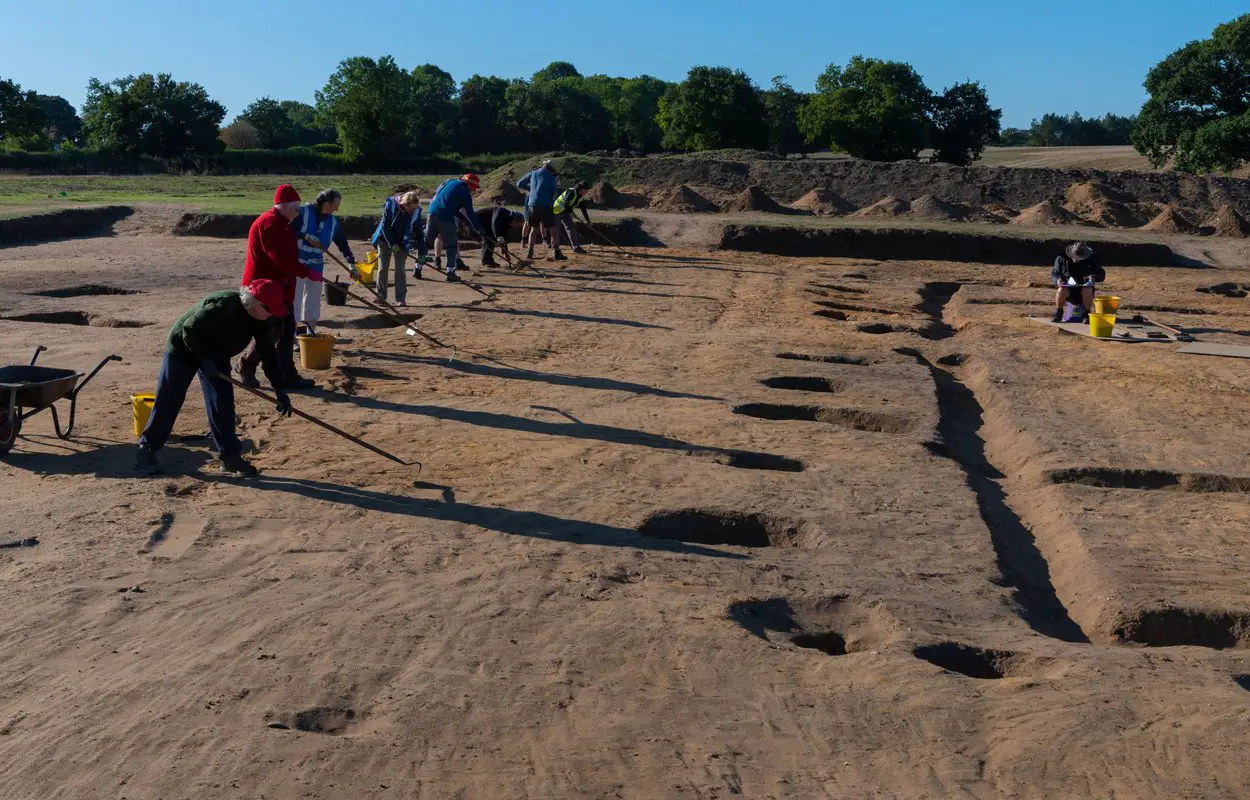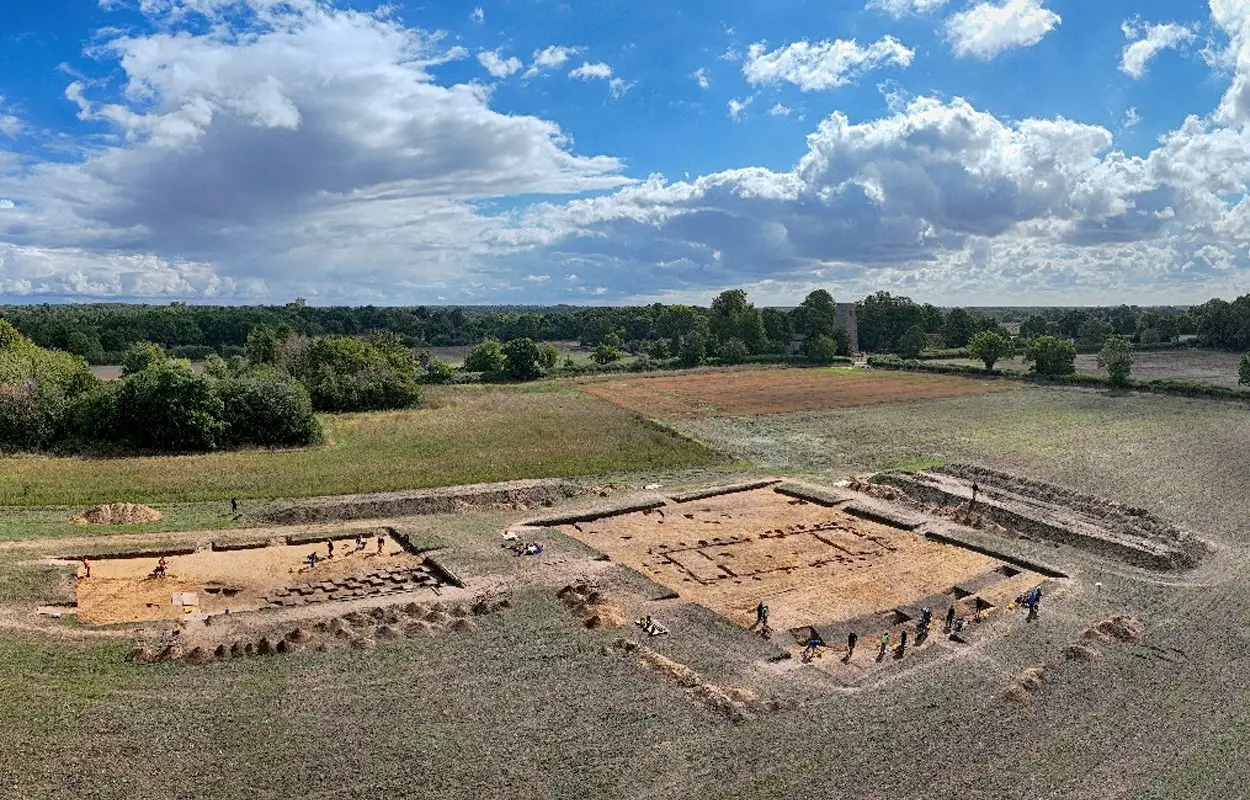Archaeologists have uncovered a 1,400-year-old royal Hall of the first Kings of East Anglia in Suffolk, England.
The hall (first identified by aerial photography in 2015) was uncovered during a community excavation as part of Suffolk County Council’s Rendlesham Revealed project. The project is an ongoing investigation of the archaeology of the Deben valley, following a pilot project undertaken at Rendlesham in 2008-2017, which uncovered evidence of an Anglo-Saxon royal settlement.
Excavations revealed the remains of a timber hall that is 23 metres long by 10 metres in width, set within a larger settlement that covers an area of 123 acres. The structure would have been one of several monumental halls in the royal compound at Rendlesham, where the first Kings of the East Angles, accompanied by their household and armed retinue, would have administered justice, received tribute and diplomatic envoys, feasted their followers, and distributed gifts and favours.
Literary text first mentions the hall in the 8th century writings of the Venerable Bede, an English monk at the monastery of St Peter and its companion monastery of St Paul in the Kingdom of Northumbria of the Angles.

Bede was as an author, teacher and scholar, and his most famous work, Ecclesiastical History of the English People, gained him the title “The Father of English History”. His writings identified Rendlesham as the location where the East Anglian King Aethelwold stood sponsor at the baptism of King Swithelm of the East Saxons, between the years AD 655 and 663.
Professor Christopher Scull, the project’s principal academic advisor (Honorary Visiting Professor, School of History, Archaeology and Religion, Cardiff University), said:
“The results of this season’s excavation are of international importance. Rendlesham is the most extensive and materially wealthy settlement of its date known in England, and excavation of the Hall confirms that this is the royal residence recorded by Bede.
“Only at Rendlesham do we have the wider settlement and landscape context of an early English royal centre together with an assemblage of metalwork that illuminates the lives and activities of its inhabitants across the social range. Together, these are radically re-writing our understanding of the sophistication, complexity and international connections of society at that time.”
Excavations also revealed the perimeter ditch enclosing the royal compound, the remains of food preparation and feasting, dress jewellery, personal items, fragments of glass drinking vessels and pottery.
Traces of an earlier settlement has also been identified with evidence from the early Roman period during the 1st century AD and Neolithic period as far back as the 4th millennium BC.
Header Image Credit : Suffolk County Council





